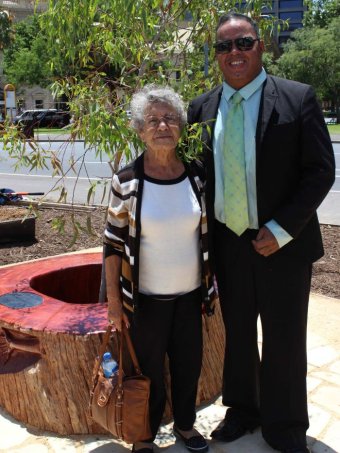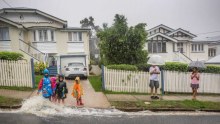Stolen Generations: South Australia's compensation scheme attracts more applications than expected
Posted
More than 350 people have applied for compensation under South Australia's Stolen Generations Reparation Scheme, with survivors describing the pain of reliving harrowing experiences from their childhood.
The one-year applications window to the $6-million scheme closes today — and last week the final requests for the $5-million community groups fund were also submitted.
Adelaide man Pascoe Braun made an application for compensation, having been removed from his mother in the Alice Springs hospital as a newborn in 1963.
"When I finally did meet my mother [after 19 years], she told me she went to the airport and heartbreakingly, waved at the plane as it took off with me in it," he said.
"My adoptive mother said I arrived in a crate with a tin of Sunshine milk with me."
Mr Braun said his adoptive parents were wonderful people.
"It's really the circumstances to do with our forced removal and being forcibly adopted ... that's the key element to the [reparations]," he said.
The scheme is open to Aboriginal South Australians who were removed as children before 1975 without valid court orders.
Money 'nothing more than a bonus to move on'
SA Aboriginal Affairs and Reconciliation Minister Kyam Maher said the number of applications was slightly higher than expected.
"We have an independent assessor, former health minister John Hill, who's met with about 100 applicants so far," he said.
"Unless their applications have evidence found against them, it will be presumed they're a member of the Stolen Generations."
Mr Maher said the process could be finalised by November.
"The act of acknowledging what happened is very important," he said.
"I know speaking to many survivors of the Stolen Generations, some have expressed it's been a difficult process reliving the memories, but a lot have also expressed it's been good to tell their stories and put applications in."
Although Mr Braun backed the government scheme, he had some concerns it could be oversubscribed.
"With 350 applicants, it will equal something like $10,000 to $15,000 each, and I think if you equate that in what people have been through, there will be questions from individual claimants," he said.
"At the end of the day, it's how people see what payment, whatever amount it is, can improve their lives, and you can only talk about yourself in this instance.
"I will see it as nothing more than a bonus to move on and do the things that I've always done, which is to try to achieve everything I can in a positive fashion."
Children being removed today because of past
The head of South Australia's Aboriginal Legal Rights Movement, Cheryl Axleby, said no amount of money would ever be enough to compensate members of the Stolen Generations.
"We don't know what the amount will be ... but we do know there'll be a flat commitment [to victims], so there'll be no grading of the level of trauma that people have experienced," she said.
Ms Axleby hoped once the reparations were made, there would be more focus on the long-term impact of the removal of Aboriginal children.
"We say this contributes to the high numbers of children being removed today, and the high number of our people in the justice system, so there's a great lot of work that needs to be done."
Topics: states-and-territories, parliament, government-and-politics, stolen-generations, indigenous-aboriginal-and-torres-strait-islander, sa








